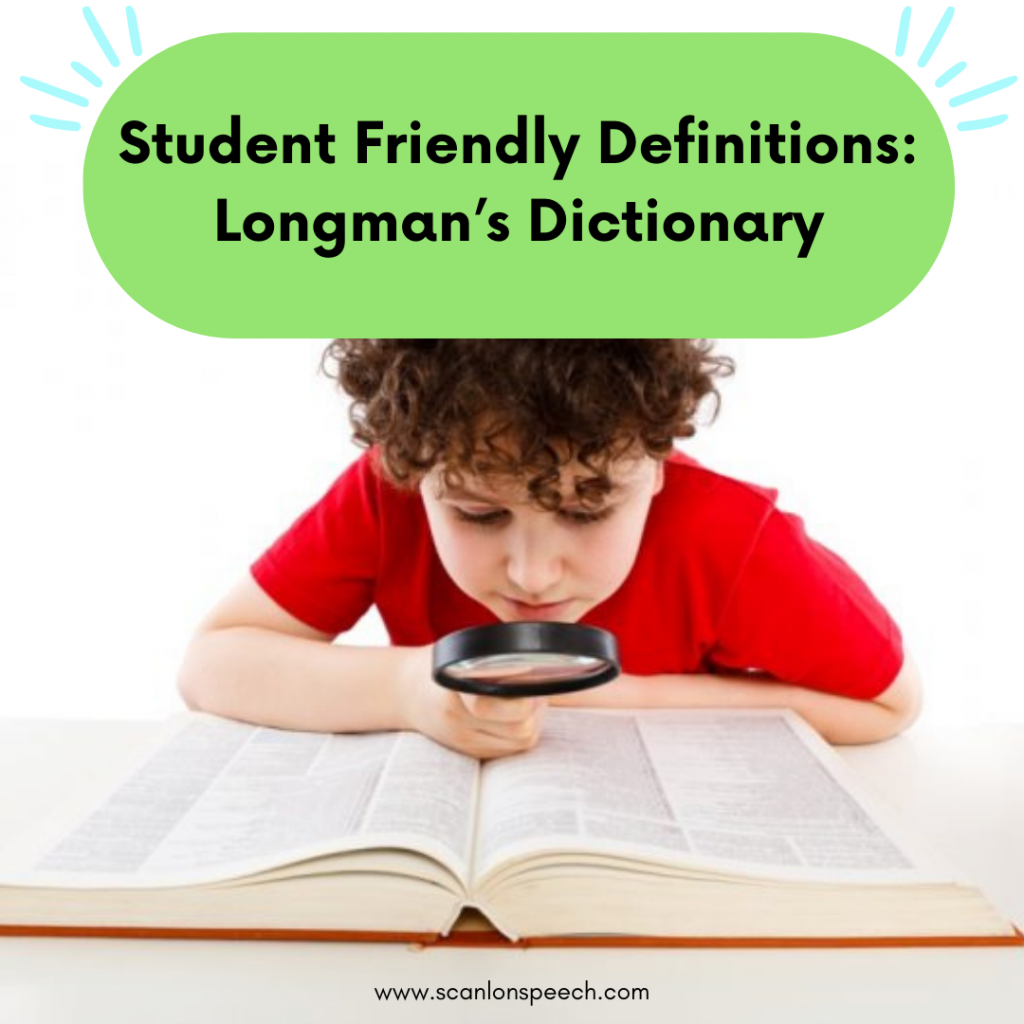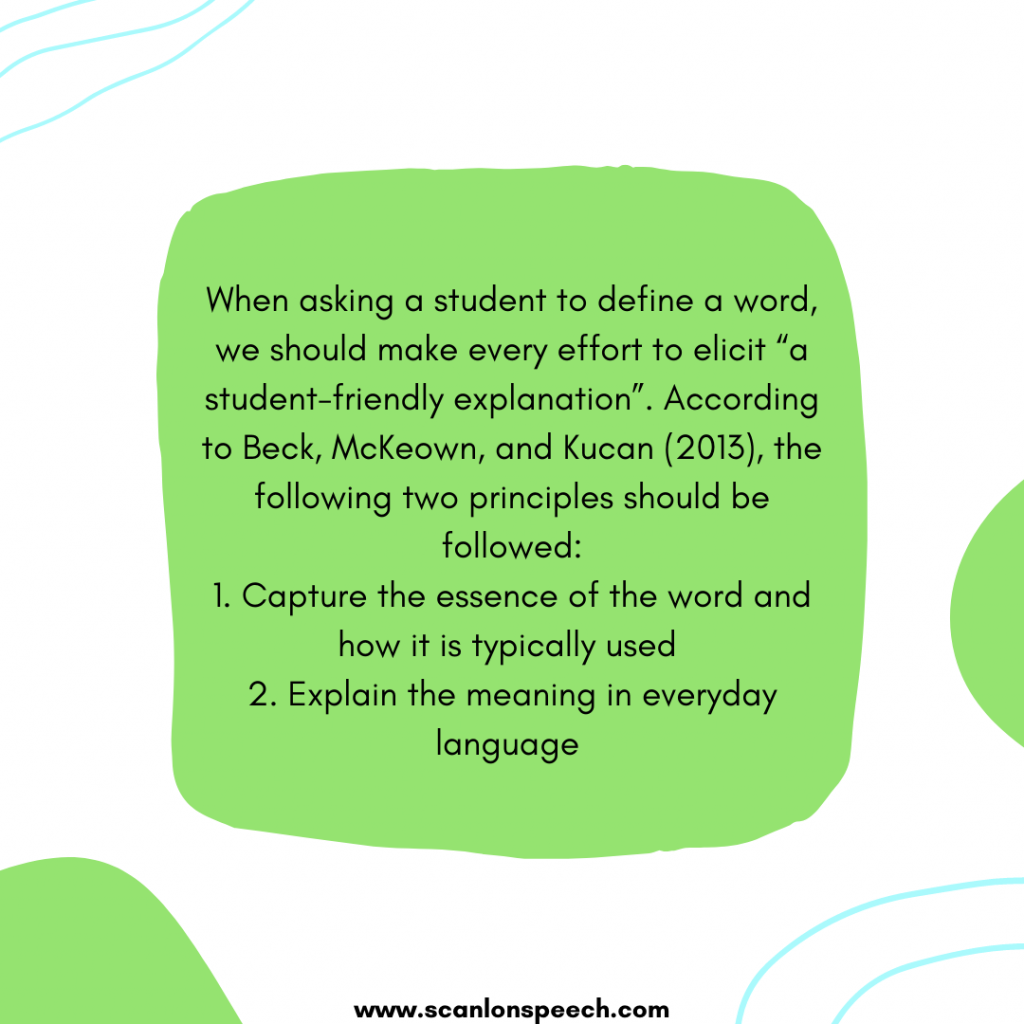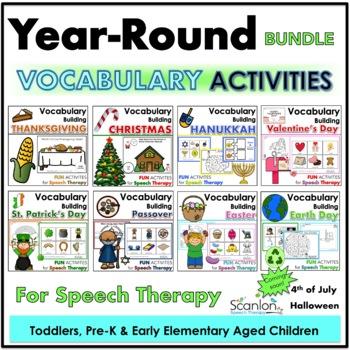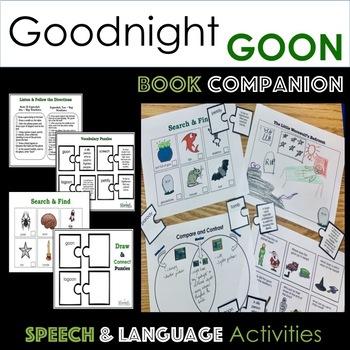Sign Up For Our E-Blast To Receive Information on our Books, Speech Therapy materials and our latest freebies!
A Great Dictionary for School-Age Children with Student Friendly Definitions

Have you ever looked up a word in a dictionary to discover that you still don’t know what the word means? Unfortunately, this happens quite often – especially to young children.
This is because most household dictionaries are primarily written to most accurately define a word, not necessarily to promote understanding.
A few years ago, I attended a lecture, by Dr. Anita Archer, a well-known educational consultant. She advocated for the use of dictionaries that provided “student-friendly explanations”.
Accordingly, student-friendly explanations are easy to understand because they use more familiar and known words. (Beck, McKeown & Kucan, 2002)
Professors from the University of Pittsburgh and authors of the best-selling book, Bringing Words to Life: Robust Vocabulary Instruction, recommend employing the following two principles when asking students to define words:
- Capture the essence of the word and how it is typically used
- Explain the meaning in everyday language

Let’s define the word: Efficacy
Merriam Webster’s definition of efficacy is:
- the ability to produce an effect.
Hmmm…okay, I may understand that definition.
Longman Dictionary of Contemporary English definition of efficacy is:
- the ability of something to produce the right result = effectiveness.
Which definition makes more sense to you?
Longman’s Dictionary is actually for English Language Learners. Yet, it’s is perfect for school aged children, particularly those who struggle with language, because it provides “student-friendly explanations”.
Their definitions make sense!
Let’s try another one:
Archaic
Merriam Webster has the following 5 definitions:
- having the characteristics of the language of the past and surviving chiefly in specialized uses <an archaic word>
- of, relating to, or characteristic of an earlier or more primitive time : antiquated<archaic legal traditions>
- capitalized : of or belonging to the early or formative phases of a culture or a period of artistic development; especially :of or belonging to the period leading up to the classical period of Greek culture
- surviving from an earlier period; specifically : typical of a previously dominant evolutionary stage
- capitalized : of or relating to the period from about 8000 b.c.to 1000 b.c. and the North American cultures of that time
These definitions are very accurate, but are they student friendly?
Longman Dictionary of Contemporary English gives the following 3 definitions for archaic along with examples:
- old and no longer used [= outdated; ≠ modern]:
- archaic words
- old-fashioned and needing to be replaced:
- Many smaller radio stations broadcast on archaic equipment.
- from or relating to ancient times:
- archaic civilizations
The later definitions ring a bell for me. What about you?
Next time when you tell your child or student to “look it up” make sure they’re using an appropriate dictionary! Because if they do “look it up” and are frustrated that they still don’t understand, then they may be less likely to “look it up” in the future.
- Enhance Your Speech Therapy Sessions with ‘Picky Kitty’ – A Must-Have Game for Every Speech Therapist
- Same and Different: Why Speech Therapists and Educators Should Target this Basic Concept
- New Beginnings for Scanlon Speech Therapy
- Articulation Speech Therapy: Favorite Activities, Games, and Books to Target the TH Sounds
- Articulation Speech Therapy: Favorite Activities, Games and Books to Target the L Sound


